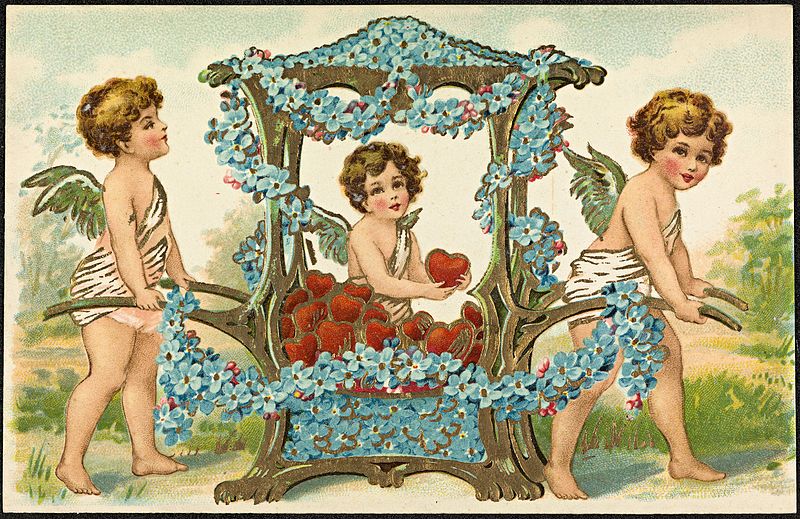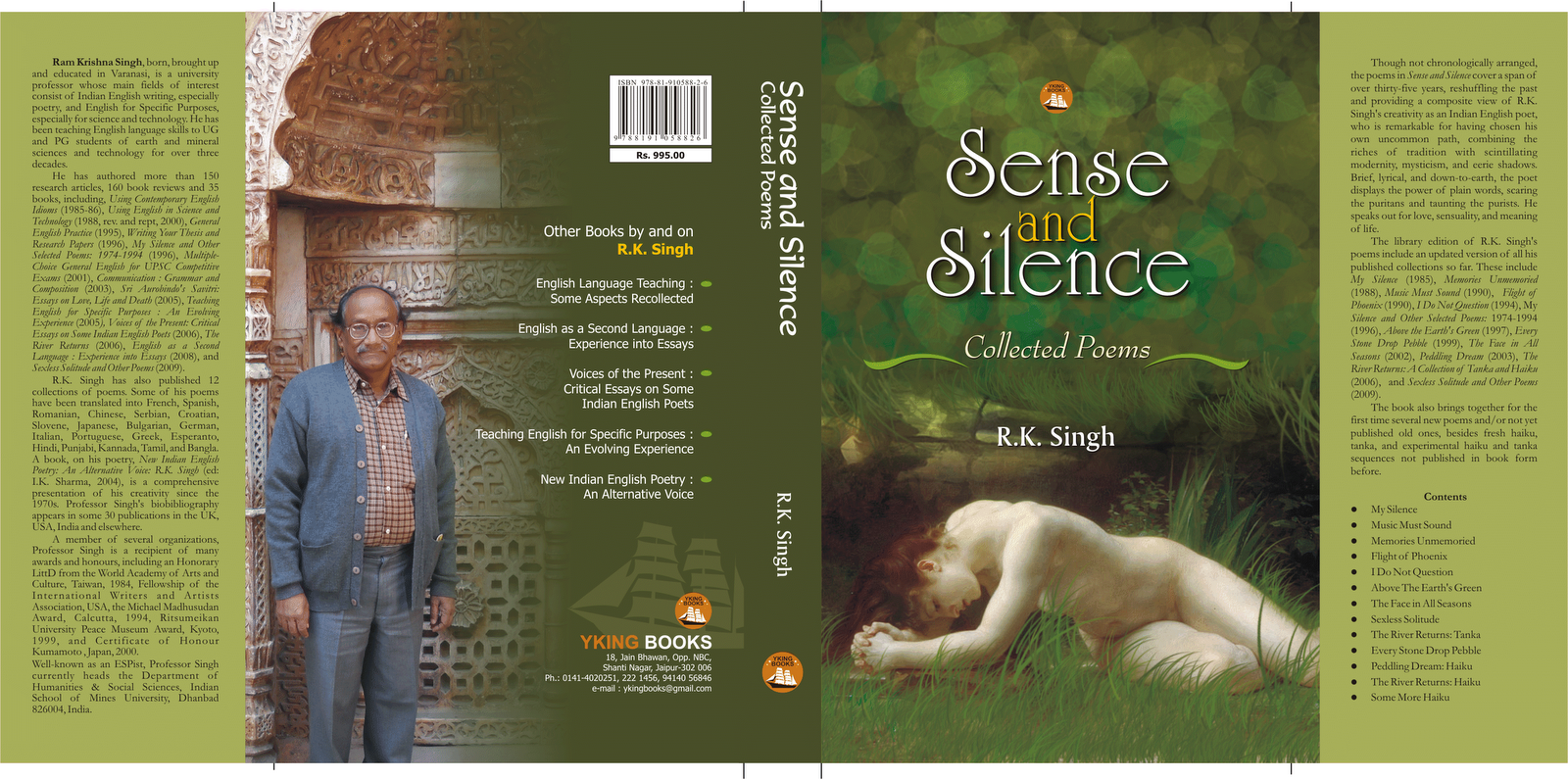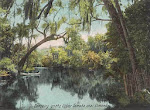March
March, month of “many weathers,” wildly comes
In hail, and snow, and rain, and threatening hums,
And floods;— while often at his cottage-door
The shepherd stands, to hear the distant roar
Loosed from the rushing mills and river-locks,
With thundering sound and overpowering shocks.
From bank to bank, along the meadow lea,
The river spreads, and shines a little sea;
While, in the pale sunlight, a watery brood
Of swopping white birds flock about the flood.
Yet Winter seems half weary of his toil;
And round the ploughmen, on the elting soil,
Will thread a minute’s sunshine wild and warm,
Through the ragg’d places of the swimming storm;
And oft the shepherd in his path will spy
The little daisy in the wet grass lie,
That to the peeping sun uncloses gay,
Like Labour smiling on a holiday;
And where the steep bank fronts the southern sky,
By lanes or brooks where sunbeams love to lie,
A cowslip-peep will open faintly coy,
Soon seen and gather’d by a wondering boy.
A tale of Spring around the distant haze
Seems muttering pleasures with the lengthening days;
Morn wakens mottled oft with May-day stains;
And shower-drops hang the grassy sprouting plains,
Or on the naked thorns of brassy hue
Drip glistening, like a summer-dream of dew.
The woodman, in his pathway down the wood,
Crushes with hasty feet full many a bud
Of early primrose; yet if timely spied,
Shelter’d some old half-rotten stump beside,
The sight will cheer his solitary hour,
And urge his feet to stride and save the flower.
The hedger’s toils oft scare the doves, that browze
The chocolate berries on the ivy boughs,
Or flocking fieldfares, speckled like the thrush,
Picking the berry from the hawthorn bush,
That come and go on Winter’s chilling wing,
And seem to share no sympathy with Spring.
The ploughmen now along the doughy sloughs
Will often stop their songs, to clean their ploughs
From teasing twitch, that in the spongy soil
Clings round the coulter, interrupting toil.
The sower o’er his heavy hopper leans,
Strewing with swinging arms the pattering beans,
Which, soon as April’s milder weather gleams,
Will shoot up green between the furrow’d seams.
The driving boy, glad when his steps can trace
The swelling headland as a resting-place,
Flings from his clotted shoes the dirt around,
And fain would rest him on the solid ground.
Not far behind them struts the nauntly crow,
And daw, whose head seems powder’d o’er with snow,
Seeking the worms: the rook, a noisy guest,
That on the wind-rock’d elms prepares her nest,
On the fresh furrow often drops, to pull
The twitching roots, or gather sticks and wool,
From trees whose dead twigs litter to the wind,
And gaps where stray sheep left their coats behind;
While ground-larks, on a swinging clump of rushes,
Or on the top twigs of the scatter’d bushes,
Chirp their “cree-creery” note, that sounds of Spring;
And sky-larks meet the sun with fluttering wing.
The shepherd-boy, that hastens now and then
From hail and snow beneath his sheltering den
Of flags, or file-leaved sedges tied in sheaves,
Or stubble shocks, oft as his eye perceives
Sun-threads shrink out in momentary smiles,
With fairy thoughts his loneliness beguiles;
Thinking the struggling Winter howling by,
As down the edges of the distant sky
The hail-storm sweeps;— and while he stops to strip
The stooping hedgebriar of its lingering hip,
He hears the wild geese gabble o’er his head;
Then, pleased with fancies in his musings bred,
He marks the figured forms in which they fly,
And pausing, follows with a wondering eye,
Likening their curious march, in curves or rows,
To every letter which his memory knows;
While, far above, the solitary crane
Swings lonely to unfrozen dykes again,
Cranking a jarring melancholy cry
Through the wild journey of the cheerless sky.
Often, at early seasons, mild and fair
March bids farewell, with garlands in her hair
Of hazel tassels, woodbine’s bushy sprout,
And sloe and wild-plum blossoms peeping out
In thick-set knots of flowers, preparing gay,
For April’s reign, a mockery of May.
The old dame then oft stills her humming wheel —
When the bright sun-beams through the windows steal
And gleam upon her face, and dancing fall
In diamond shadows on the pictur’d wall;
While the white butterfly, as in amaze,
Will settle on the glossy glass to gaze —
And smiling, glad to see such things once more,
Up she will get and totter to the door,
And look upon the trees beneath the eaves —
Sweetbriar and lad’s-love — swelling into leaves;
And, stooping down, cull from her garden beds
The early blossoms perking out their heads,
In flower-pots on the window-board to stand,
Where the old hour-glass spins its thread of sand.
And while the passing clown remarks, with pride,
Days lengthen in their visits a “cock’s stride,”
She cleans her candlesticks and sets them by,
Glad of the make-shift light that eves supply!
The boy, retiring home at night from toil,
Down lane and close, o’er footbrig, gate, and stile,
Oft trembles into fear, and stands to hark
The waking fox renew his short gruff bark;
And shepherds — that within their hulks remain
Night after night upon the chilly plain,
To watch the dropping lambs, that at all hours
Come in the quaking blast like tender flowers —
When in the nightly watch they chance to hear
The badger’s shrieks, can hardly stifle fear;
Likening the cry, from woodland’s dark recess,
To that of helpless woman in distress:
For Superstition hath a thousand tales
To people all her midnight woods and vales;—
And the dread spot from whence the dismal noise
Mars the night-musings of their dark employs,
Owns its sad tale to realize their fear —
A tale their hearts in boyhood ached to hear.
A maid, at night, by treacherous love decoy’d,
Was in that shrieking wood, years past, destroy’d.
She went, ’twas said, to meet the waiting swain;
But home and friends ne’er saw her face again!
’Mid brake and thorns that crowded round the dell,
And matting weeds that had no tongue to tell,
He murder’d her alone at dead midnight,
While the pale moon threw round her sickly light.
Loud screams assail’d the thicket’s slumbers deep,
But only scared the little birds from sleep;
When the pale murderer’s terror-frowning eye
Told its dread errand — that the maid should die.—
’Mid thick black thorns her secret grave was made;
And there the unresisting corpse was laid,
When no one saw the deed but God and he,
And moonlight sparkling through the sleeping tree.
The Robin-redbreast might at morning steal
There, for the worm to meet his early meal,
In fresh-turn’d moulds which first beheld the sun —
Nor know the deed that dismal night had done.
Such is the tale that Superstition gives;
Which in her midnight memory ever lives;
Which makes the boy run by with wild affright,
And shepherds startle on their rounds at night.
Now love-teazed maidens, from the droning wheel,
At the red hour of sun-set, slily steal
From scolding dames, to meet their swains again;
Though water checks their visits o’er the plain:
They slive where no one sees, some wall behind,
Or orchard apple-tree that stops the wind,
To talk about Spring’s pleasures hovering nigh,
And happy rambles when the roads get dry.
The insect-world, now sunbeams higher climb,
Oft dream of Spring, and wake before their time.
Bees stroke their little legs across their wings,
And venture short flights where the snow-drop hings
Its silver bell, and winter aconite
Its butter-cup-like flowers that shut at night,
With green leaf furling round its cup of gold,
Like tender maiden muffled from the cold:
They sip, and find their honey-dreams are vain,
Then feebly hasten to their hives again.—
The butterflies, by eager hopes undone,
Glad as a child come out to greet the sun,
Beneath the shadow of a sudden shower
Are lost — nor see to-morrow’s April flower.
~~
John Clare
from The Shepherd's Calendar, 1827
[
Poem is in the public domain worldwide]
Read The Shepherd's Calendar complete
John Clare biography















